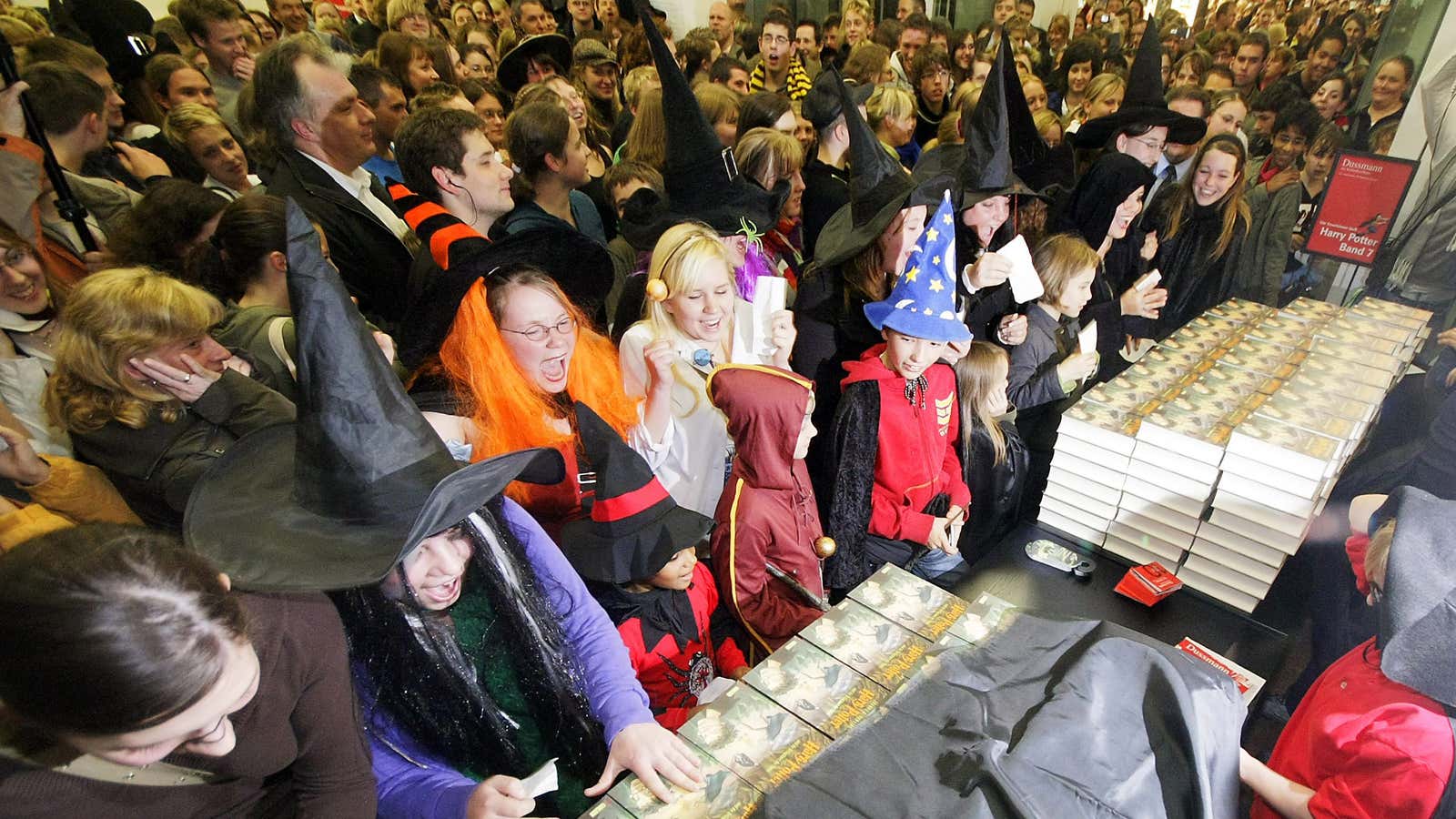The greatest English writers of modern history: William Shakespeare, Charles Dickens, and JK Rowling. So a new survey from the UK would have you believe.
Last October, the Royal Society of Literature set out to find out how much British residents know about literature. They released the findings (pdf) from their survey yesterday, and the results were…mixed.
The surveyors, from research company Ipsos MORI, went door to door and interviewed 2,000 adults in the UK. Around 75% said they had read something non-work-related in the last six months, and that it could be categorized as literature.
Seventy percent of respondents said they thought literature is something that comforts people in times of stress. In response to a different question, 15% said they thought literature is too difficult to understand.
When asked whether they could name any living or dead person who wrote what could be considered literature, 20% answered no, they didn’t know, weren’t sure, or couldn’t remember. Of those who could answer, Shakespeare was the person named most, followed by Dickens and Rowling.
Surveyors left the definition of what constitutes literature up to their interviewees. “We wanted the public to tell us what literature is to them, rather than tell them what we thought,” says Annette Brook, communications manager for the 197-year-old nonprofit arts organization. So participants also named: Woody Allen, Deepak Chopra, Ruby Wax, and Stephen Spielberg. Only two writers of color were named by more than one person: Zadie Smith and Haruki Murakami.
“It was surprising that 75% of population felt that somebody they had read in the last six months was literature,” says Brook. “That was exciting for us, heartening, pleasing. But the fact that a significant minority don’t access literature or read at all really; that’s not surprising. That’s just sad for us.”
